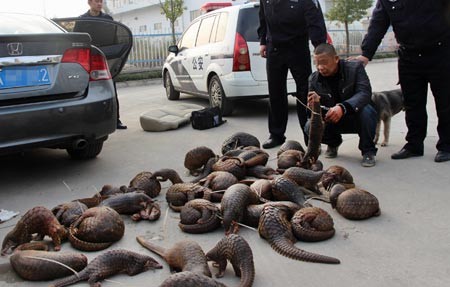Guangdong's local police force, along with the provincial food and drug supervisor, is tightening their grip on the surveillance on food safety crimes, according to a report by China Daily. The teams are particularly focused on illegal food additives and unsafe meat.
Between the period of April and Sept. 2015, 230 criminal cases were closed and 378 suspects put behind bars, according to Peng Hui, the deputy director of the Guangdong Provincial Public Security Department. The numbers reflect a significant increase from the numbers last year.
In the same period, the task force honed in on 155 locations where officers seized over 60 tons of diseased dead pigs and 425 tons of unknown frozen meat, among others.
"The special action has effectively contained the crimes of producing and selling unsafe meat and meat products. But we need to continue the fight, otherwise the big threat to public health will rise again," said Peng in a news conference in Guangzhou on Tuesday, Nov. 4.
Another special task force was recently organized last October to deal with the case of illegal food additives. The special action will last until March.
Earlier this year, Chinese President Xi Jinping emphasized the need for strengthened supervision on food and drug safety. Four points were raised at a meeting of the Political Bureau of the CPC Central Committee: strictest standards, strictest supervision, strictest punishment and strictest accountability.
Despite the recent successes, the battle against food safety crimes still has a long way to go. Chief Inspector Su Shengfeng from the Guangdong Food and Drug Administration encourages the public to help in exchange for rewards.
"People with poor awareness of the law are lured by huge profits to produce, smuggle and sell foods that are of shoddy quality or even pose threats to public health, which is why it is difficult to eradicate safety crimes," said Su. "Besides the special crackdowns as deterrents, we increase the cost of breaking law by putting offenders on a black list and exposing them to the public."



























